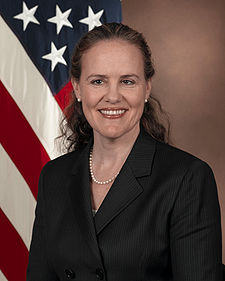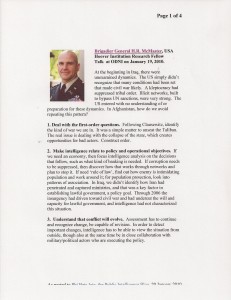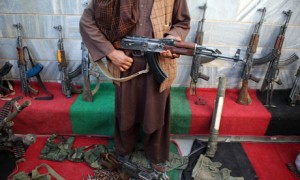
Phi Beta Iota: We don't make this stuff up. The Pentagon has no strategy because the U.S. Government has no strategy. The National Security Council is managed by a General who emphasized getting along with the Chief of Naval Operation, never-mind leaving Marines wounded on the battlefield for lack of Naval Gunfire Support (NFS).
Join us in savoring what passes for a strategist and nominal policy making savant with the below headlines.
Below item is full text to avoid inconvenience. It is followed by several linked headlines that make quite clear the shallowness of the Pentagon strategy-policy pool.
Executive Summary: The gentle lady has no idea what the ten high-level threats to humanity are, nor does she care. She's a place-holder for the disappointed John Hamre, and a token female at the top who goes with the flow. She has neither any grasp nor any conceptual framework for actually creating grand strategy, harmonizing Whole of Government policies nor even–this really did surprise us–how many failed states there are in the world.
PBS March 27, 2010
Interview With Michele Flournoy, Under Secretary Of Defense For Policy
Charlie Rose (PBS), 1:00 A.M.
CHARLIE ROSE: The United States military is engaged around the world. It is withdrawing combat troops from Iraq as it builds up troops in Afghanistan. It is partnering with Pakistan in an aggressive counterterrorism campaign including drone attacks in the tribal areas. It’s working with the Yemeni government to counter a resurgent al Qaeda there. And U.S. troops are still in Haiti for the humanitarian relief efforts.
But the military has to do more than respond to the conflicts of the day. It must prepare for future wars, adoptive enemies and a shifting security environment.
The person at the Pentagon who spends the most time working on these issues is Michèle Flournoy. She is under secretary of defense for policy and the highest ranking female official in the Defense Department. I am very pleased to have her with me in the night studio at the Newseum in Washington.
Tell me what it is that you do at the Pentagon, how do you define this responsibility?
Continue reading “Journal: Pentagon Strategy & Policy Oxymoron Squared?”










